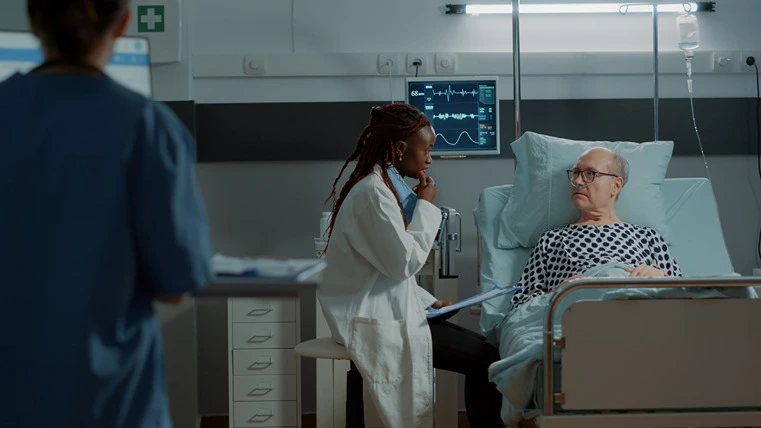What are the elements of informed consent?
What is and is not included in informed consent
Medical practitioners are legally obligated to abide by informed consent practices, educating their patients on the risks and benefits and possible alternatives to a medical intervention or procedure. Practitioners who fail to uphold the elements of informed consent may be guilty of medical malpractice.
If you believe your doctor did not provide informed consent, seek help from the Lake Charles medical malpractice lawyers at The Johnson Firm. Our team will explain the elements of informed consent, review your situation, and advise you of the best way forward.

Why is obtaining informed consent an obligation?
The idea of informed consent recognizes that people have the right to understand their health and healthcare options fully. It also recognizes that a person has the right to know if they are taking a medical or personal risk and what is at stake. In short, this rule understands that sometimes what you don’t know can hurt you.
Doctors and surgeons have years of training and knowledge that patients cannot be expected to pick up on their own. Requiring informed consent allows patients to ask questions and receive information about potential medical treatments to make an educated decision about their care. Informed consent is required whenever a patient undergoes a medical procedure, starts a new treatment, participates in a clinical trial, or authorizes any medical intervention.
Ethically, informed consent demonstrates respect for the patient and their understanding of their medical situation. It prompts necessary and important conversations, cultivating a sense of trust between patient and physician.
What are the elements of informed consent?
According to a National Library of Medicine (NLM) “StatPearls” publication, there are four elements of an informed consent discussion and a fifth assessment component. Physicians must explain:
- The nature of the intervention or procedure
- Risks and benefits
- Reasonable alternative
- Risks and benefits of the alternative interventions
Then, the physicians must assess the patient’s understanding of those four discussion points. Doctors must document the informed consent discussion and the patient’s ultimate decision in the patient’s medical record. Failure to fulfill informed consent duties may constitute medical malpractice, and The Johnson Firm can help you seek justice.
Can a nurse obtain informed consent for surgery?
An article in Clinics and Practice found in the NLM answers the question, “Can nurses obtain informed consent,” by indicating that as direct care providers, nurses play a necessary role in obtaining informed consent. They have a unique influence in advocating for collaborative decision-making with patients.
Because of their thorough understanding of the process, nurses can fulfill advocacy roles “without running the risk of practicing outside their professional scope” when they take responsibility for obtaining consent.
Are there exceptions to the informed consent rule?
Informed consent is not always required. Two of the major exceptions are:
- The patient is incapacitated and unable to give consent to a needed intervention.
- The patient is facing a life-threatening emergency, and there is no time to obtain consent.
Adult patients without intellectual disabilities or other factors limiting their ability to give informed consent can do so unless they voluntarily waive it. Louisiana law establishes parties who may provide informed consent on behalf of a patient when circumstances warrant. It also establishes how doctors must proceed if there are no parties available.
Move toward justice and healing
The Johnson Firm has been advocating for injured residents of Lake Charles for decades. We help victims seeking compensation after being harmed by a medical professional, and we are ready to get started on your case. Send a message or call our office at (337) 433-1414. Upon taking your case, our Lake Charles medical malpractice lawyers will investigate your situation and fight aggressively to hold negligent doctors accountable.